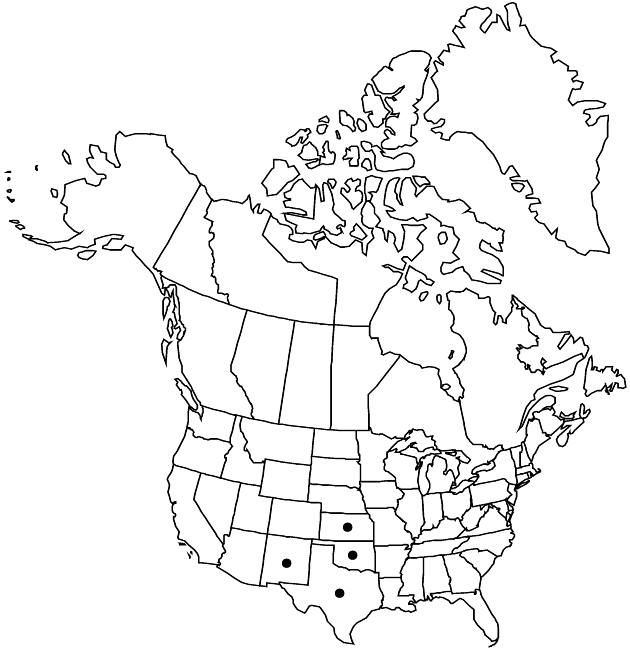Tetraneuris linearifolia
Pittonia 3: 269. 1898.
Annuals, 16–50+ cm. Caudices none. Stems 1–10, erect or ± decumbent, leafy, unbranched or branched distally. Leaves basal and cauline, ± hairy, ± gland-dotted; basal blades spatulate to oblanceolate, entire or with 2–6 teeth or lobes; proximal cauline blades narrowly spatulate or oblanceolate to linear-oblanceolate, entire or with 2–6 teeth or lobes; mid blades oblanceolate to linear-oblanceolate to linear, 0.9–9.5(–16) mm wide, entire or with 1–2 teeth or lobes; distal blades narrowly oblanceolate to linear-oblanceolate to linear, entire or with 1–2 teeth or lobes. Heads 8–50(–80) per plant, borne singly or in corymbiform arrays. Peduncles 8–29 cm, ± hairy. Involucres 5–10 × 7–15 mm. Outer phyllaries 8–21, 2.4–5.5 mm, margins 0–0.2 mm wide, not scarious or scarious, abaxial faces ± hairy. Ray florets 9–25; corollas 8.2–16.8 mm. Disc florets 50–200+; corollas yellow, 1.6–3 mm. Cypselae 1.5–2.6 mm; pappi of 4–8 obovate, often aristate scales 1–2.5 mm.
Distribution

Kans., N.Mex., Okla., Tex., n Mexico.
Discussion
Varieties 2 (2 in the flora).
Plants of Tetraneuris linearifolia morphologically intermediate between the two varieties are found in Bee, Duval, Live Oak, and McMullen counties, Texas.
Selected References
None.
Key
| 1 | Stems erect, branched distally; leaves ± hairy, basal blades entire or with 2(–6) teeth or lobes, proximal cauline blades entire or with 1–2 teeth or lobes, mid blades (0.9–)1.4–3(–4.8) mm wide; involucres (7–)8–11(–12) mm diam.; pappus scales aristate; Kansas, New Mexico, Oklahoma, Texas, on limestone-derived soils | Tetraneuris linearifolia var. linearifolia |
| 1 | Stems erect or ± decumbent, ± branched distally; leaves usually densely hairy, basal blades with 2–6 teeth or lobes, proximal cauline blades with 2(–6) teeth or lobes, mid blades (2.5–)3.9–9.5(–16) mm wide; involucres 12–15 mm diam.; pappus scales not aristate; s Texas on sand | Tetraneuris linearifolia var. arenicola |